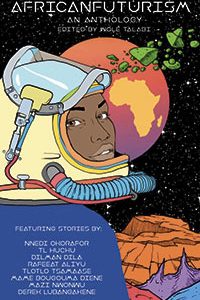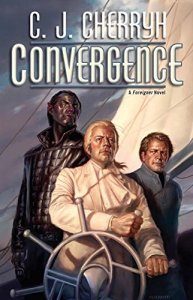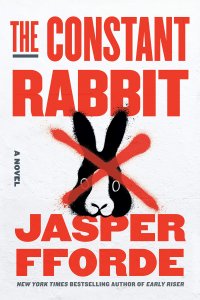Gary K. Wolfe reviews Margo Lanagan
When Margo Lanagan’s novella ‘‘Sea- Hearts’’ received the World Fantasy Award in 2010, it was already widely known that a full-length novel was in the works, and it didn’t seem at all unreasonable when a few people I spoke to expressed excitement leavened by apprehension, as is often the case when a well-formed tale is revealed to be part of a larger whole. Was More Than Human better than ‘‘Baby Is Three’’, or Flowers for Algernon better than the short story of the same title? In a sense it’s a pointless question, since novels tend to get read by far wider audiences than novellas, and ‘‘Sea-Hearts’’ originally appeared in an Australian anthology by Keith Stevenson that was virtually unavailable in the US. But the novel Sea Hearts (note the subtle difference in the title) is getting wide distribution as a YA title (like her earlier World Fantasy-winning Tender Morsels), although the American and UK editions are unfortunately retitled The Brides of Rollrock Island, which sounds like a rock musical Olivia Newton-John might have starred in 40 years ago. No matter; it’s a gorgeous piece of work, perhaps less startling and visceral than Tender Morsels, but in many ways a richer and more complex novel, and it ain’t going to be a musical anytime soon (though it might make a terrific opera).
Sea Hearts is a selkie novel, as distinguished from the spate of mermaid novels we’ve seen in the past couple of years, but as a Lanagan novel it’s distinguished in several other ways as well. In place of the vaguely European, folkloristic setting of Tender Morsels, it takes place mostly on Rollrock Island, a hardscrabble fishing community suggestive of the North Sea cultures that gave rise to the selkie legends in the first place. Daniel Mallett, the boy who narrated the novella, turns out to be only one of six narrators, who collectively recount something like three generations of life on Rollrock, centered on a tragic period during which the men of the island, aided by the witch Misskaella Prout, almost universally take the hypnotically beautiful seal-maids as their wives, in some cases sending their human wives (or ‘‘red women’’) packing off to the mainland town of Cordlin, often with families in tow. The sea-wives themselves are trapped in human form by having the sealskins from which they emerged locked away from them. The result is a disturbing, guilt-ridden, all-male society (it turns out that girlchildren born to the seal-women can’t survive in the human world, so there are only boys), at times resembling a darker Gothic version of The Stepford Wives, with the seal-women themselves taking such a strangely passive role that they kept reminding me of Paul Delvaux’s famous surrealist painting ‘‘Village of the Mermaids’’, with its line of otherworldly women sitting with proper gowns and folded hands while their sisters sport in the distant sea. (It’s significant that we never get the point of view of any of the seal-women, who remain as much a mystery to the human characters as to us. But then, I suppose, seals don’t generally narrate.)
Although Daniel is the only character who narrates two sections, the central unifying figure in the novel is the witch Misskaella, viewed by all the other characters as a fearsome, embittered old woman made wealthy by the fees she exacts from the men for finding them seal-wives. Her own tragic history forms the second section and sets up the terms for the entire novel. (Ironically, she also gets the most purely romantic idyll, in her youthful encounter with a male selkie.) Misskaella’s tale is followed by that of Bet Winch, whose mother unsuccessfully challenges Misskaella when she sees her own son taking a sea-wife, and later decides to leave with her family. Next is the tale of Daniel’s father Dominic Mallett, who had moved to the mainland after his own father died, but finds himself trapped by his own desires on a return visit. The last three sections are narrated by Daniel, who grows more and more troubled by the plight of the ‘‘mams’’; by Lori Severner, Bet’s daughter, whom Daniel had met as a child (the only human girl he’d seen to that time) and who now moves into her old family house on Rollrock; and by Trudella Callisher, a mainland girl recruited to serve as Misskaella’s apprentice.
This odd but compelling narrative structure, with each successive tale opening up and commenting on earlier ones, gives an almost panoramic sense of passing generations for what is not a very long novel (the effect is something like that of Faulkner’s Go Down, Moses, with its seven stories of different characters in different generations illuminating each other until the whole becomes a coherent narrative). Given Lanagan’s distinctive language-bending style, it’s something of a challenge for her to differentiate the six narrative voices, though we quickly come to realize that, while they mostly share the island’s dialect, each tone is quite specific to the character – Daniel’s growing indignation at the plight of his and the other ‘‘mams,’’ his father’s weak efforts at self-rationalization, Misskaella’s bitter loneliness that leads her to seize what power she can from a community that both despises and needs her. Along the way, Lanagan develops, without benefit of an external narrator or sidebar lectures, some sharp insights into female passivity and victimization (at least on the part of the seal-women), male fecklessness and almost helpless self-absorption (early on, some of them pack their sea-wives away in cabinets the way an alcoholic hides his booze), the complex relationships of parents and children, and the fragile negotiations between community and nature. Except for a few comments from distrustful mainlanders, we learn about Rollrock entirely from within, and for a while we seem to live there. It’s not always a pleasant vacation, but it’s a deeply illuminating one, and Sea Hearts may eventually be seen as some sort of masterpiece.
Sea Hearts









